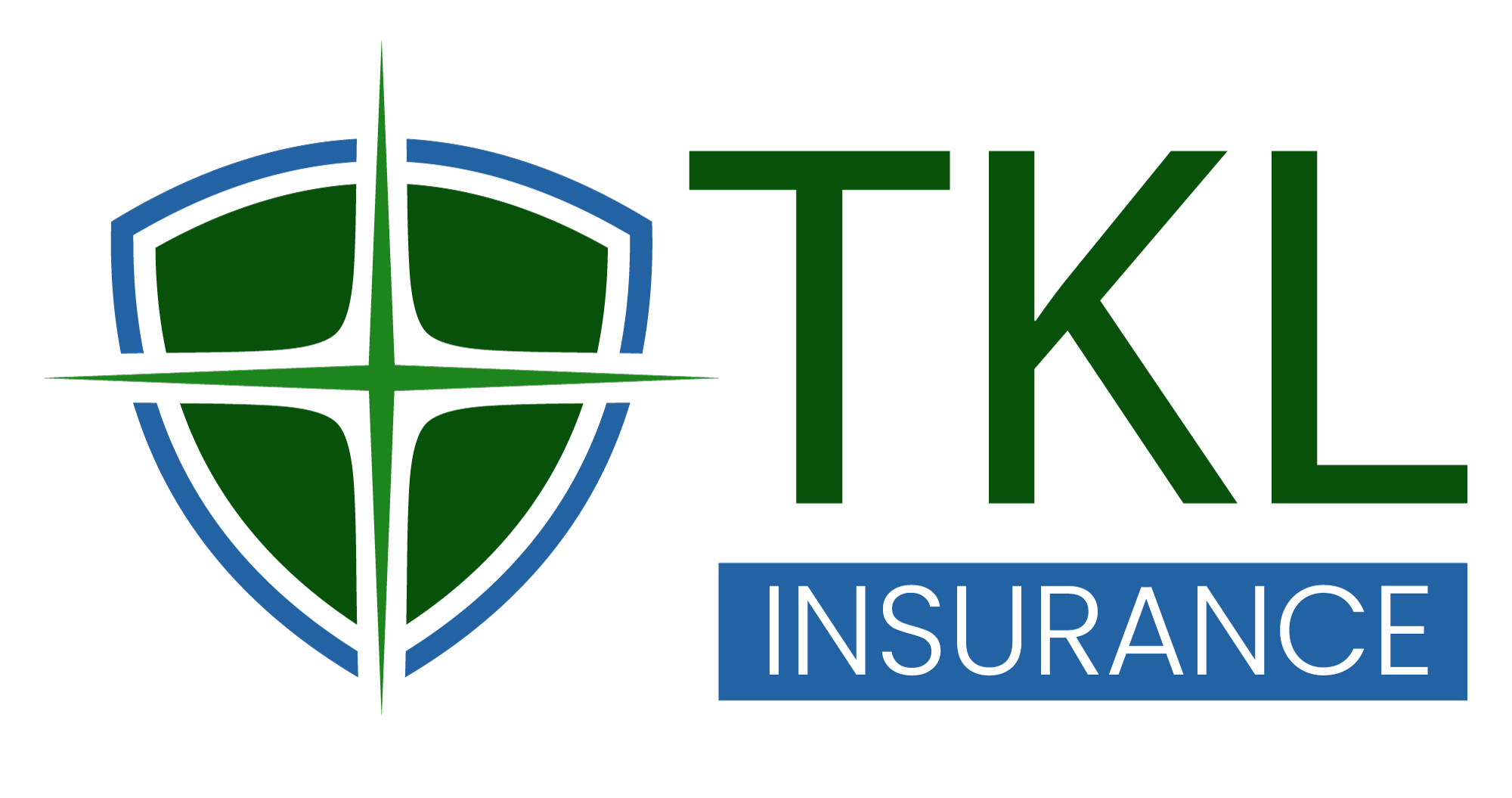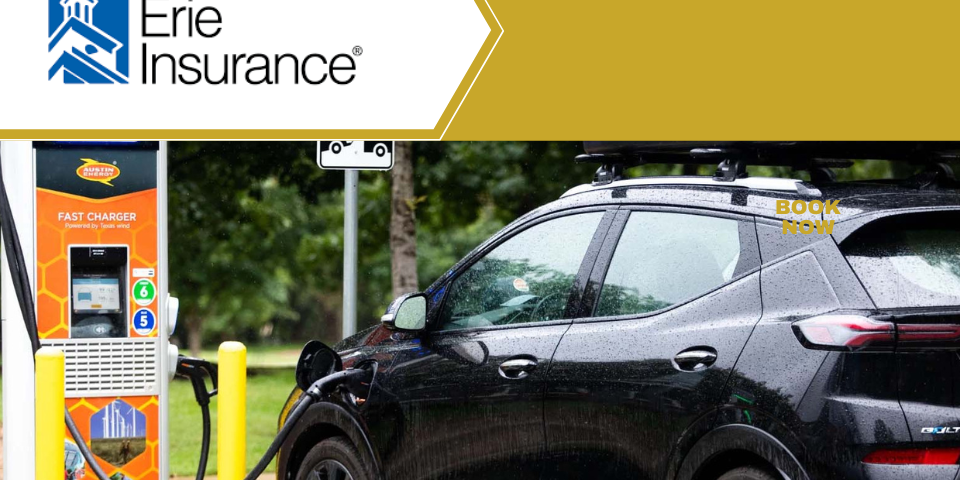Erie Insurance for Electric Cars in Texas

Is Root Car Insurance Legit
June 3, 2024
How Much is Insurance for a New G2 Driver in Toronto
June 12, 2024Table of Contents
ToggleErie Insurance for Electric Cars in Texas
No, Erie insurance for Electric Cars in Texas is not available at this time. Erie offers insurance for electric cars in the states they operate in, Texas is not one of them. If you’re looking for insurance coverage for your electric car in Texas, you may need to consider other insurance providers that operate in that state.
Does Erie Insurance cover Texas?
“Erie Insurance doesn’t cover Electric cars in Texas. They offer car insurance in 12 states and Washington, D.C. only, but not in Texas. You can get their car insurance in Illinois, Indiana, Kentucky, North Carolina, New York, Maryland, Ohio, Tennessee, Pennsylvania, Virginia, Washington, D.C., West Virginia, and Wisconsin.”
For electric car owners in Texas, it would be advisable to look into other insurance providers that explicitly offer coverage for EVs within the state. Many reputable insurance companies insure electric cars in Texas. Getting quotes from a few will help you find the best rate and coverage options. Insurance Providers like State Farm, Geico, and Progressive, among others, have tailored policies for electric vehicles and operate in Texas.
Erie Insurance for Electric Cars in Texas
Introduction
Electric cars are becoming more popular in Texas, and with their rise, owners need to have the right insurance. However, Erie Insurance, a well-known provider, does not offer auto insurance in Texas. Let’s explore the options available for electric car owners in Texas and why finding the right coverage is essential.
The Growing Popularity of Electric Cars in Texas
More and more people in Texas are choosing electric cars. This is because electric cars are better for the environment, there are savings to be had, and there are just lots of cool new electric cars to choose from these days. Even though Texas is a big state, electric cars are becoming more popular and might be a common sight on the roads in the future.
However, Owning an electric car in Texas can be a bit tough at times. You might have trouble finding places to charge it, and figuring out how the whole electric car thing works can be confusing. The most important thing to remember, though, is to make sure your car insurance covers everything electric cars need.
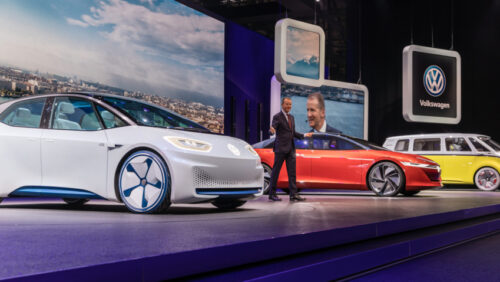
Understanding the Insurance Needs of Electric Cars
Insuring an electric car is different from insuring a traditional gasoline car. EVs have unique needs and risks. For example, if your battery gets damaged, it can be very expensive to replace. Repairs often require specialized knowledge and parts. Therefore, it’s crucial to have comprehensive coverage that addresses these specific needs. While Erie Insurance doesn’t cover EVs in Texas, other providers do offer suitable policies.
Overview of Erie Insurance
Erie Insurance is known for its reliable service and wide coverage across many states. They offer various insurance types like auto, home, and business. However, it’s important to know they don’t operate in Texas. Currently, Erie serves 12 states and Washington, D.C., providing auto, home, business, and life insurance policies. With over 7 million policies and 14,000 agents, Erie aims for affordable and comprehensive coverage. Their A+ rating from A.M. Best reflects strong financial stability. This dedication to service and affordability has made Erie a trusted insurance choice for almost a hundred years.
Insurance Providers for Electric Cars in Texas
Since Erie Insurance does not operate in Texas, electric car owners should consider other insurers that offer specialized EV coverage. Some notable options include:
- State Farm: Offers comprehensive EV insurance options including coverage for charging equipment.
- Geico: Provides affordable insurance with options tailored for electric vehicles.
- Progressive: Known for customizable policies and competitive rates, including for EVs.
These providers offer coverage options such as:
- Liability Coverage: Covers costs if you’re responsible for an accident and need to pay for others’ damages or injuries.
- Collision Coverage: This type of insurance pays the cost of repairing your car damaged in an accident, regardless of who’s at fault.
- Uninsured/Underinsured Motorist Coverage: This insurance protects you if you are in an accident with a driver who does not have enough insurance to cover your damages or injuries.
- Roadside Assistance and Towing Coverage: Important, especially for electric cars, covering towing to a charging station or repair shop if your car breaks down.
- Comprehensive Coverage: Covers non-collision damages like theft, fire, or natural disasters.
Customer Testimonials and Case Studies
Many electric car owners in Texas have shared positive experiences with insurers that cover EVs. For instance, John from Austin was relieved when his insurance covered the cost of a new battery after he was damaged in an accident. Similarly, Sarah from Dallas appreciated the quick and efficient roadside assistance she received when her car ran out of charge on a road trip. These real-life stories highlight the satisfaction and peace of mind that comprehensive EV insurance provides.
Comparing Insurance Providers
When comparing insurance companies in Texas, certain advantages become apparent. Providers such as State Farm, Geico, and Progressive often provide extensive coverage options designed specifically for electric vehicles (EVs) and offer superior customer service compared to standard insurers. Conducting research and comparing these options can help you find the best fit for your needs.
How to Get Started with Insurance for Your Electric Car
Getting started with an insurance provider that covers electric cars is easy. Here’s a simple guide:
Get a Quote: Visit the insurer’s website or contact a local agent to get a free quote.
Evaluate Options: Discuss your needs and evaluate the different coverage options available.
Select Coverage: Choose the coverage that best fits your needs and budget.
Sign Up: Complete the necessary paperwork and enjoy peace of mind knowing your electric car is well-protected.
For detailed information, you can also visit State Farm, Geico, Progressive, and other insurers’ official websites.
Is it more costly to insure a hybrid or electric car?
Electric vehicles (EVs) and hybrids can cost more to insure than regular gasoline cars because repairs and parts are often pricier. However, many insurance companies offer discounts for eco-friendly vehicles, which can help lower costs. It’s wise to compare quotes from various insurers to find the most affordable option
How are electric cars different from hybrid cars?
Electric cars (EVs) run solely on electricity, using a battery to power an electric motor. They don’t use gasoline and produce zero emissions from driving. Hybrid cars merge an internal combustion engine with an electric motor, utilizing both gasoline and electricity for power. They’re more fuel-efficient than traditional cars and emit less pollution, but they still rely partly on fossil fuels.
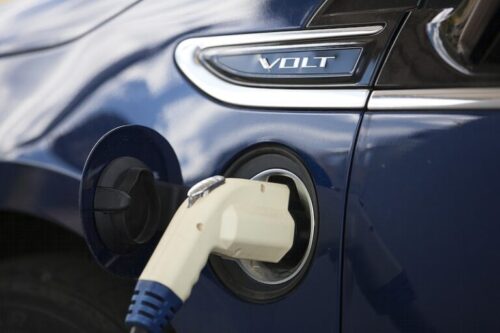
NREL,-owned electric vehicles (EVs) below solar canopy at the Vehicle Testing & integration Facility (VTIF), where vehicles are charged with photovoltaic (PV) – generated electricity and can provide backup energy to the grid when PV generation is low. Original public domain image from Flickr
What are the main advantages and disadvantages of hybrid and electric cars?
-
Pros:
-
- Lower operating costs (fuel and maintenance)
- Environmental benefits (reduced emissions)
- Government incentives and rebates
- Quieter operation
-
Cons:
-
- Higher upfront cost
- Limited range for some electric cars
- Longer refueling time (charging)
- Limited availability of charging stations in some areas
What is the price of insurance for an electric car?
“The insurance cost for an electric car depends on factors like the vehicle’s make and model, your driving record, and where you live. Generally, insuring an EV might be a bit pricier than a gasoline car. To find out the exact cost, it’s best to ask for quotes from several insurance companies.
Where can I get insurance for my electric car?
In Texas, several insurance companies offer coverage for electric vehicles. Notable providers include State Farm, Geico, Progressive, and Allstate. These companies have tailored policies for EVs, ensuring you get the protection you need.
How can I reduce the cost of insurance for my electric car?
Tips to save on your EV insurance:
- Shop Around: Compare quotes from different insurers.
- Look for Discounts: Many insurers offer discounts for eco-friendly vehicles.
- Bundle Policies: Combine your auto insurance with other policies, like home insurance, to get a discount.
- Maintain a Good Driving Record: A clean driving record can lower your premiums.
- Increase Deductibles: Choosing a higher deductible can reduce your premium.”
What are the advantages of driving an electric car?
Electric vehicles offer several benefits:
- Cost Savings: Lower fuel and maintenance costs.
- Environmental Impact: Reduced emissions help combat climate change.
- Performance: Instant torque provides quick acceleration.
- Incentives: Access to government rebates and tax incentives.
Do insurance companies offer coverage for electric cars?
Yes, many insurance companies provide coverage for electric vehicles. Major insurers like State Farm, Geico, Progressive, and Allstate offer policies tailored for EV owners. These policies typically include coverage for the unique components and risks associated with electric cars.
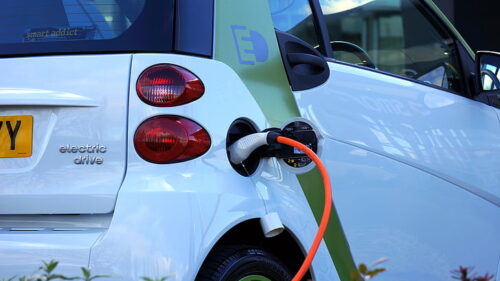
What kind of insurance does an electric vehicle need?
Your EV will need the same basic coverage as any other vehicle, including:
Liability Coverage: This protects you if you’re responsible for an accident.
Collision Coverage: This coverage Pays for damages to your vehicle from a collision.
Comprehensive Coverage: This covers non-crash-related damage like theft or fire.
Uninsured/Underinsured Motorist Coverage: This protects you if you’re hit by someone who doesn’t have enough insurance.
Roadside Assistance is especially important for EVs, covering things like towing to a charging station or repair shop.
How much insurance coverage should you have for your electric car?
The amount of coverage you need depends on your situation, but generally, it’s advisable to have higher liability limits to cover potential damages and medical costs. Additionally, ensure your comprehensive and collision coverage limits are sufficient to replace your EV if it’s totaled.
How can I lower the expenses of owning an electric car?
Besides saving on insurance, you can reduce the overall cost of owning an EV by:
- Taking Advantage of Incentives: Utilize federal and state incentives for purchasing EVs.
- Charging Smart: Charge your EV during off-peak hours to save on electricity costs.
- Regular Maintenance: Regularly maintain your EV to avoid costly repairs.
- Eco-Driving: Adopt good driving habits that maximize your EV’s efficiency.
Conclusion
If you own an electric car in Texas, getting insurance is super important. It protects your investment and gives you peace of mind. While Erie Insurance doesn’t cover Texas, there are other good options like State Farm, Geico, Progressive, and Allstate. They have special insurance plans just for electric cars. Understanding how much it’ll cost, what you’ll get, and what kind of coverage your EV needs is key. By comparing prices, looking for discounts, and finding ways to save money, you can get great insurance for your electric car without breaking the bank.
 FAQs
FAQs
Does Erie Insurance cover Texas?
No, Erie Insurance does not offer coverage in Texas.
What states does Erie Insurance operate in?
Erie Insurance operates in 12 states and the District of Columbia. These states include Illinois, Indiana, Kentucky, Maryland, New York, North Carolina, Ohio, Pennsylvania, Tennessee, Virginia, West Virginia, and Wisconsin (Erie Insurance)
What qualifies as full coverage insurance in Texas?
Full coverage insurance in Texas typically includes liability insurance, collision coverage, comprehensive coverage, uninsured/underinsured motorist coverage, and personal injury protection (PIP) or medical payments coverage.
What is the maximum insurance coverage in Texas?
The maximum insurance coverage depends on the policy limits you choose. Texas law requires minimum liability coverage of $30,000 per injured person, up to $60,000 per accident, and $25,000 for property damage. However, drivers can purchase higher limits for better protection.
Is Erie Insurance a reciprocal insurance company?
Yes, Erie Insurance operates as a reciprocal insurance exchange, which means it is owned by its policyholders who share in the underwriting profits and losses.
What is the most important insurance coverage for electric cars?
Liability coverage is essential as it protects you if you cause an accident. Comprehensive and collision coverage are also crucial due to the high repair costs of electric vehicles.
Does insurance for electric cars cost more than for gas cars?
Generally, yes. The higher market value and specialized repair costs of electric cars can result in higher premiums compared to traditional gas-powered vehicles.
Can I get discounts on my electric car insurance?
Yes, many insurers offer discounts for cars equipped with advanced safety features. Additionally, some providers offer incentives for driving environmentally friendly vehicles.
What should I do if my electric car battery gets damaged?
Ensure your insurance policy includes battery coverage. This will help cover the costs of repairs or replacement, which can be quite expensive.
Are there any special insurance considerations for electric cars?
Yes, special considerations include battery coverage and roadside assistance tailored for electric vehicles, as well as potentially higher premiums due to the car’s value and repair costs.
